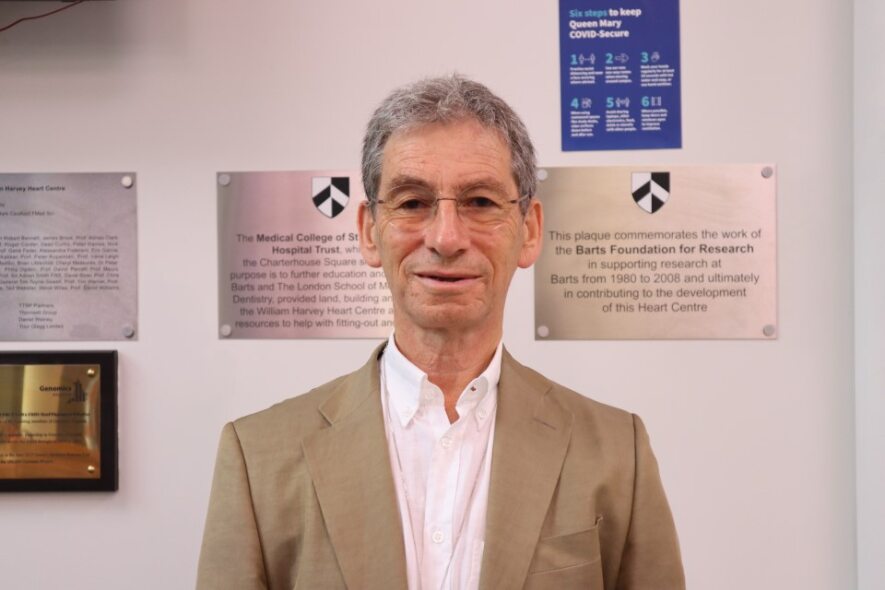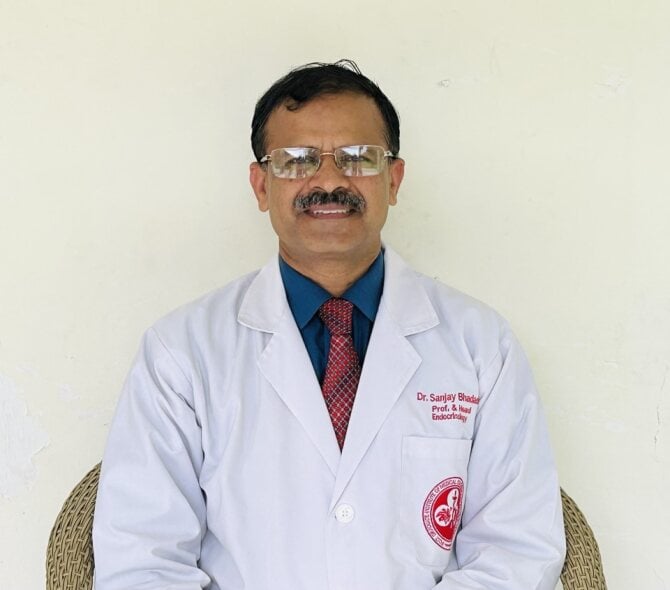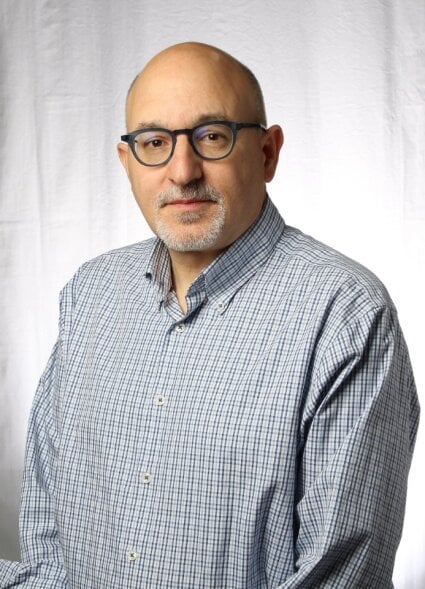On August 14, the Endocrine Society announced the 14 leading endocrinologists as winners of its prestigious 2024 Laureate Awards, the top honors in the field.
These professionals have achieved breakthroughs in scientific discoveries and clinical care benefiting people with hundreds of conditions, including diabetes, thyroid disorders, obesity, hormone-related cancers, growth problems, osteoporosis, and infertility.
Established in 1944, the Society’s Laureate Awards recognize the highest achievements in the endocrinology field, including groundbreaking research and innovations in clinical care. The Endocrine Society will present the awards to the winners at ENDO 2024 in Boston June 1 – 4.
The Endocrine Society’s 2024 Laureate Award winners are:

E. Dale Abel, MBBS, DPhil
Fred Conrad Koch Lifetime Achievement Award
The Society’s highest honor, this annual award recognizes lifetime achievements and exceptional contributions to the field of endocrinology. Abel is a past- president of the Endocrine Society and the current chair and executive medical director of the Department of Medicine at the University of California, Los Angeles (UCLA) and UCLA Health in Los Angeles, Calif. He has a lengthy record as a researcher and clinician, and as a mentor to young scientists. Abel’s pioneering work on glucose transport and mitochondrial metabolism in the heart guided his research interest in molecular mechanisms responsible for cardiovascular complications of diabetes. His laboratory has provided important insights into the contribution of mitochondrial dysfunction and aberrant insulin signaling to heart failure risk in diabetes. His research has been continually funded by the National Institutes of Health (NIH) for more than 20 years and his scientific contributions have been recognized by election to the National Academy of Medicine and the National Academy of Sciences in the United States. He previously served as the chair and executive officer of the Department of Internal Medicine and Professor of Medicine, Biochemistry and Biomedical Engineering at the University of Iowa in Iowa City, Iowa. Since 2012, he has been a principal investigator for the Endocrine Society’s Future Leaders Advancing Research in Endocrinology (FLARE) program, which has helped individuals from underrepresented groups establish successful careers in endocrinology and diabetes research. He has held several leadership positions at the Endocrine Society, including past-president, and is currently a deputy editor for Endocrine Reviews.

Gerald D. Aurbach Award for Outstanding Translational Research
This annual award recognizes outstanding contributions to research that accelerates the transition of scientific discoveries into clinical applications. Brown is the professor of endocrine hypertension at Queen Mary University of London in London, United Kingdom. His research focuses on finding adrenal causes of hypertension and the right treatment for the right patient. In 1999, he proposed the AB/CD rule, which underpins many guidelines for hypertension. As president of the British Hypertension Society, he conducted the ‘PATHWAY’ clinical trials to establish optimal treatment for different categories of hypertension. His current research is mainly focused on the adrenal gland and the small aldosterone-producing adenomas that are a common cause of hypertension and are unrecognized in 99% of cases. Morris’ pioneering translational work fulfills his vision to identify and appropriately treat all patients with aldosterone-related hypertension, thereby revolutionizing patient care and long-term outcomes.

Vincent Prevot, PhD
Edwin B. Astwood Award for Outstanding Research in Basic Science
Originally awarded from 1967 and renamed to honor the scientific contributions of the late Dr. Edwin B. Astwood, this award recognizes individuals who have made significant contributions to the field of endocrinology via their outstanding basic science research. Prevot is a research director at Inserm (French National Institute of Health and Medical Research), and laboratory head of Development and Plasticity of the Neuroendocrine Brain at Lille Neuroscience & Cognition, France. His research into neuronal and glial plasticity in the GnRH system is crucial for understanding the onset of puberty and adult fertility. He has provided many seminal contributions and groundbreaking concepts in the understanding of the central control of mammalian reproduction. His current research focuses on neuroscience and neuroendocrinology, in particular the brain circuits that control reproduction and metabolism and the neural pathways through which they respond to peripheral information. He served as an editorial board member of the Endocrine Society journal, Endocrinology.

Cesar Luiz Boguszewski, MD, PhD
International Excellence in Endocrinology Award
This award is presented to an endocrinologist who has made exceptional contributions to the field in geographic areas with underdeveloped resources for hormone health research, education, clinical practice, or administration. Boguszewski is a full professor of endocrinology & metabolism in the Department of Internal Medicine at the Federal University of Paraná in Curitiba, Brazil, where he founded SEMPR – the Endocrine Division of the University Hospital. He is currently the head of SEMPR and director of the Neuroendocrinology Unit within the University hospital. He was the president of the Brazilian Society of Endocrinology & Metabolism (SBEM) during its 2021-2022 term, and now he coordinates SBEM International Committee. He has served on several Endocrine Society committees, most recently as a member of the Board of Directors, Governance Task Force, Trainee and Career Development Core Committee, and CEO Search Committee. He was associate editor of the European Journal of Endocrinology for eight years, and is now associate editor of Reviews in Endocrine and Metabolic Disorders and Endocrine. His main fields of interest are pituitary diseases, obesity and neuroendocrine regulation of body weight and body composition. He has authored more than 150 journal articles and book chapters, and co-edited a medical book entitled Pituitary: The Master Gland.

Sadaf Farooqi, MD, PhD
Outstanding Clinical Investigator Award
This annual award honors an internationally recognized clinical investigator who has contributed significantly to understanding the pathogenesis and therapy of endocrine and metabolic diseases. As a clinical scientist and professor of metabolism and medicine at the Wellcome-MRC Institute of Metabolic Science at the University of Cambridge in Cambridge, U.K., Farooqi researches the fundamental mechanisms that control human energy homeostasis. She discovered the first genes whose disruption causes severe obesity and established that the principal driver of obesity is a failure of the central control of appetite. In children with congenital leptin deficiency treated with recombinant leptin, she showed that leptin reduced hyperphagia, permitted the onset of puberty at an appropriate developmental stage, and reversed T cell mediated immune dysfunction. She has held roles within the Endocrine Society, including associate editor of The Journal of Clinical Endocrinology & Metabolism and member of the Society’s Annual Meeting Steering Committee. Farooqi also participates in advocacy efforts to raise more awareness around weight stigma and obesity as a disease.
Sandra Daniela Licht, MD

Vigersky Outstanding Clinical Practitioner Award
This annual award recognizes extraordinary contributions by a practicing endocrinologist to the endocrine and/or medical community. Licht has been a clinical endocrinologist at her private practice in Buenos Aires, Argentina, for over 25 years. Her expertise is thyroid disease. She sees more than 100 patients per week at her office and makes the time to travel 1,000 miles every other month to provide endocrine care to an underserved rural population in remote Patagonia. She also shares her expertise by lecturing to medical and patient groups throughout South America. For the past 15 years, she has been a medical advisor to the Association of Patients with Thyroid Cancer of the Argentina Republic and a member of the Medical Advisory Panel of the Thyroid Cancer Alliance, an international network of national thyroid cancer support groups. She is currently a member of the Endocrine Society’s Nominating Committee and has served on the Clinical Practice Guidelines and Publication Core Committees.

A. Enrique Caballero, MD
Outstanding Educator Award
This annual award recognizes exceptional achievement as an educator in the discipline of endocrinology and metabolism. Caballero is the director of International Innovation Programs in the Office for External Education and the director of Diabetes Education in the Postgraduate Medical Education Department at Harvard Medical School in Boston, Mass. He also is the director of Latino Diabetes Health and an associate scientist at the Brigham & Women’s Hospital in Boston, Mass. He founded the Latino Diabetes Initiative at the Joslin Diabetes Center and the Diabetes Program within the Spanish Clinic at the Brigham & Women’s Hospital. His research interests include type 2 diabetes and cardiovascular disease prevention as well as management of diabetes in racial/ethnic minorities, particularly the Latino/Hispanic population. He has worked in the field of diabetes education for over two decades and is a well-recognized leader at a national and international level, and a prominent figure in the field of diabetes in underserved communities. He has trained dozens of medical students, residents, fellows, researchers, allied health professionals, and physicians from the U.S., Latin America, and Spain on the complex challenge of managing diabetes in underserved communities. He currently serves on the Endocrine Society’s Committee on Diversity & Inclusion.

Anne Klibanski, MD
Outstanding Leadership in Endocrinology Award
This annual award recognizes outstanding leadership in fundamental or clinical endocrinology. Klibanski is president and chief executive officer of Mass General Brigham and the former chief of the Neuroendocrine Unit at the Massachusetts General Hospital in Boston, Mass. Mass General Brigham is the largest hospital-based research enterprise in the U.S., with annual funding of more than $2 billion. Klibanski leads clinical integration of services across Mass General Brigham and is responsible for the development of new digital platforms to achieve virtual care. She oversees increased investment in leading-edge research that has the potential to revolutionize treatments, such as gene and cell therapy. The system’s innovation team has created more than 300 companies that are making broad impacts on human health, in various spaces – from therapeutics to diagnostics and research. Under Klibanski’s leadership, Mass General Brigham has committed significant resources to community health, with a particular investment in mental health programs. She established “United Against Racism,” a long-term, multi-year commitment to address the impacts that racism has on Mass General Brigham patients, employees, and the broader community. She is recognized internationally for her high-impact research in neuroendocrine disorders and pituitary tumors.

Sanjay Bhadada, MD, DM
Outstanding Mentor Award
This annual award recognizes a career commitment to mentoring and a significant positive impact on mentees’ education and career. Bhadada is a professor of endocrinology and head of the Endocrinology Department at the Postgraduate Institute of Medical Education and Research in Chandigarh, India. He established one of the most highly sought-after postgraduate training programs in endocrinology in Southeast Asia and has mentored more than 40 endocrinology fellows and medical students, numerous graduate students and postdoctoral fellows, and many early-career faculty. As the current president of the Endocrine Society of India and as former secretary of the Indian Society of Bone Mineral Research, he has provided outstanding leadership in expanding the training and educational venues for fellows and medical students at a national level. He is currently an editorial board member for The Journal of Clinical Endocrinology & Metabolism.

David Katz, PhD
Outstanding Innovation Award
Established in 2013, this award is presented to recognize an individual or team of people who have demonstrated innovation to further endocrine research or practice in support of the field of endocrinology, patients, and society at large. Katz is the founder and chief scientific officer of Sparrow Pharmaceuticals, Inc., in Portland, Ore., a pharmaceutical company developing targeted therapies for conditions of cortisol excess and to reduce the side effects of glucocorticoid medicines. Prior to Sparrow, Katz was a leader in personalized medicine, drug discovery and clinical development at Abbott and AbbVie. Katz and his team developed a novel therapy, the HSD-1 inhibitor SPI-62, that is currently in Phase 2 clinical trials for treating Cushing’s syndrome, autonomous cortisol secretion (ACS), and, in combination with prednisolone, polymyalgia rheumatica. The current therapies for treating these conditions are not always both effective and safe. SPI-62 could be the first novel-mechanism drug in over 30 years for people with Cushing’s. Read an Endocrine News Q&A with Katz.
Dolores Shoback, MD
Outstanding Scholarly Physician Award

This annual award recognizes outstanding contributions to the practice of clinical endocrinology in academic settings. Shoback cares for patients who have endocrine disorders such as metabolic bone disease, parathyroid disorders, and osteoporosis at the San Francisco Veteran Affairs Medical Center and the University of California San Francisco (UCSF). She is also the associate program director of UCSF’s physician training program in diabetes, endocrinology, and metabolism. Shoback’s research interests include metabolic bone disease, the calcium-sensing receptor and parathyroid hormone. Shoback is a basic and clinical investigator who has made immense contributions to our understanding of metabolic bone diseases. She has been an effective educator of physicians and patients for three decades. Since becoming an Endocrine Society member in 1987, she has held several service positions, including secretary-treasurer of its Board of Directors and chair of the Finance and Audit Committee. She served as the co-chair of The Journal of Clinical Endocrinology & Metabolism Working Group, a member of the Editor-in-Chief Search Committee for Endocrinology, and a member of the Osteoporosis Clinical Practice Guideline Writing Committee.
Joshua J. Joseph, MD, MPH

Richard E. Weitzman Outstanding Early Career Investigator Award
This annual award recognizes an exceptionally promising young clinical or basic investigator. Joseph is an associate professor of medicine at The Ohio State University Wexner Medical Center and College of Medicine in Columbus, Ohio. He is an exceptional young investigator who translates hypothesis-generating population science findings into clinical and community-based interventions. Joseph’s research focus is to understand risk factors for the development of obesity and type 2 diabetes in diverse populations. He has been working to shed light on racial and ethnic differences in the association of physical activity and other lifestyle factors in the development of diabetes using large multi-ethnic observational cohorts, including the Multi-Ethnic Study of Atherosclerosis (MESA) and the Jackson Heart Study. He uses this data to design and execute detailed metabolic clinical studies to uncover explanatory mechanisms as potential targets for preventive interventions for diabetes and obesity. He currently serves as chair of the Society’s Clinical Affairs Core Committee.
Evan D. Rosen, MD, PhD

Roy O. Greep Award for Outstanding Research
This annual award recognizes meritorious contributions to research in endocrinology. As chief of the Division of Endocrinology, Diabetes, and Metabolism at Beth Israel Deaconess Medical Center and professor of medicine at Harvard Medical School in Boston, Mass., and an institute member of the Broad Institute in Cambridge, Mass., Rosen has made unique and important contributions to our understanding of adipose biology. His lab’s goal is to define novel targets that can be manipulated to improve outcomes in metabolic disease. They research the transcriptional pathways that underlie metabolic diseases like obesity and type 2 diabetes. They use genomic and epigenomic approaches to identify novel transcription factors and pathways that regulate processes such as adipogenesis, lipid handling, insulin resistance, and metabolic memory. His lab also created many mouse models that are widely used by the research community to study adipose tissue. Rosen has authored several very prominent reviews on adipose biology, which have collectively been cited more than 7,000 times. He is a former Editorial Board member for the Society’s basic science journal, Endocrinology.
Lynnette Nieman, MD

Sidney H. Ingbar Distinguished Service Award
This award recognizes distinguished service to the Endocrine Society and the field of endocrinology. Nieman is a senior investigator at the National Institutes of Health (NIH), where she served as the associate program director of the Inter-Institute Endocrinology Training Program for 12 years and is currently chief of the Adult Endocrinology Consult Service. Her research focus is adrenal gland disorders and disorders of female reproduction. She has contributed to the diagnosis and differential diagnosis of Cushing’s syndrome and phase II/III studies of ulipristol acetate leading to the European Medicines Agency’s (EMA) approval for the treatment of fibroids and the U.S. Food and Drug Administration and the EMA’s approval for emergency contraception. For over 25 years, she has held leadership positions at the Endocrine Society, most notably as Society President in 2017-2018. During her presidency, she led the Strategic Plan and Governance Task forces that created the Endocrine Society’s current fourth Strategic Plan and revised its Governance structure. She has served on numerous committees, including chairing the Annual Meeting Steering Committee and the Clinical Endocrinology Update Committee. She was a member of the Nominating Committee, the Publications Core Committee, and the Research Affairs Core Committee. She was also an associate editor of The Journal of Clinical Endocrinology & Metabolism. She is currently the chair of the Society’s Clinical Practice Guideline Task Forces for the diagnosis and treatment of Cushing’s syndrome.
Nominations are being accepted for the 2025 awards cycle until January 20, 2024. Any submissions received after that will be considered for the following year.

